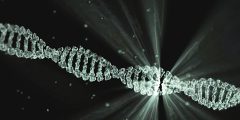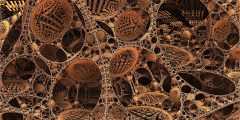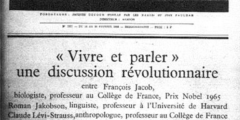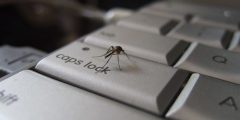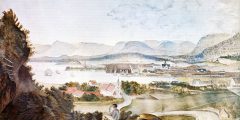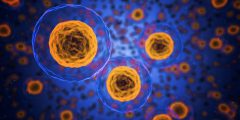“It’s just like epigenetics” – scientific metaphors for non-scientific concepts
November 29, 2019
This is a guest post by Cath Ennis. Cath is a Knowledge Translation Specialist with the University of British Columbia’s Human Early Learning Partnership and the Kobor Lab at BC Children’s Hospital Research Institute. *** In our new paper, Brigitte Nerlich, Aleksandra Stelmach and I examined the metaphors used by academic social scientists and alternative …
How to do things with epigenetics
November 22, 2019
We have just published in article on epigenetics in Social Science Information! It’s part of a special issue coordinated by the sociologist Michel Dubois (CNRS, Paris) that is coming out in print at the beginning of the new year. The special issue deals with epigenetics and interdisciplinarity. Our article examines some obstacles that might hinder …
Metaphors and society (and Brexit)
November 8, 2019
I have been interested in metaphors and society for a long time. My thinking has been influenced mainly by people who wrote about metaphor (and society) at the end of the 1970s and early 1980s; for example, Susan Sontag, Donald Schön, Andrew Ortony, George Lakoff and Mark Johnson and others, who examined ‘conceptual’ or ‘generative’ …
Encounters between life and language
September 5, 2019
Philip Ball has just written a great article dissecting new research showing that there is no ‘gene for’ homosexuality. He notes the fallacies behind the facile way of pointing to individual genes and saying what they are ‘for’. This is dangerous, especially when talking about genes for behavioural traits. Single genes don’t determine such traits …
Making the transgenerational epigenetic inheritance of trauma real
August 2, 2019
This post has been co-authored with Aleksandra Stelmach and Alan Miguel Valdez *** Transgenerational epigenetic inheritance (TEI) is a contested hypothesis within the complex field of epigenetics. The guess is that there are molecular mechanisms (‘beyond the gene’) through which social, cultural and physical experiences impact the human body and are transmitted to future generations. …
Inspecting Pandora’s box: Promises and perils of gene drives
July 20, 2019
This is a guest post by Aleksandra Stelmach, University of Nottingham, Institute for Science and Society. *** Some years ago the sociologist Alan Petersen noted that metaphors of new biotechnologies not only express hopes and fears about their use and misuse, but that they also set the agenda for debate and action. Thus, metaphors not …
When is a metaphor not a metaphor?
July 15, 2019
A few weeks ago Daniel Nicholson posted an article on twitter entitled “Are cells really machines?” This made me think, and I wrote a blog post pondering the relations between science, metaphors and technology. In this post I want to reflect on another aspect of the relation between science and metaphors, namely on when metaphors …
The history of biology and the joys of blogging
July 5, 2019
For the first time in my life and after the end of my official academic career, I’ll be co-presenting a paper at the International Society for the History, Philosophy and Social Studies of Biology conference, which is taking place this year in Oslo, from July 7-12. I’ll only be co-presenting and I won’t be there …
Metaphors, machines and the meaning of life
June 30, 2019
Machine metaphors are ubiquitous in biology, nowhere more so than in synthetic biology, a type of biology that is inspired by engineering and design. This has attracted the attention of metaphor analysts, but also of philosophers and ethicists. Various scholars, both from the humanities/social sciences and the life sciences have grappled with some of the …
Talking about gene drive
June 24, 2019
In 2019 I became a co-investigator on a project led by Dr Sarah Hartley at the University of Exeter. The project was funded by The Wellcome Trust and was called: “Talking about gene drive: An exploration of language to enable understanding and deliberation in Africa, Europe, North America and Australasia”. The team The international team …
Subscribe by email
About this blog
This blog promotes discussion of topics related to the research programme 'Making Science Public: Challenges and Opportunities'. Our purpose is not to 'make science public'. Instead, we want to study the opportunities that have emerged for science to be more openly practiced and debated, but also the challenges posed by making science public or by promoting the making public of science as a solution to a variety of problems in society and in politics.
This blog will report on these and other issues related to the Leverhulme funded research programme: Making Science Public: Challenges and Opportunities
Useful links
Recent Posts
- Climate change and climate discourse: A dual disintegration
- Erving Goffman: Memories, method and metaphors
- Participation at the core: AI, ELSI and community engagement
- Understanding computational hermeneutics: Making meaning between the past and the present
- AI winter and AI bubble: Historical and metaphorical reflections
 MSP bookmarks
MSP bookmarks
- Twitter May 8, 2017
- Social innovations in Europe #RRI November 3, 2015
- Harvey Graff, the undisciplinarian September 20, 2015
- Replacing Pesticides With Genetics August 31, 2015
- Addressing hazardous chemicals in the circular economy August 25, 2015
Categories
- antibiotics
- anticipatory governance
- artifical intelligence
- big data
- biotechnology
- citizen science
- Climate Change
- Climate Politics
- co-production
- coronavirus
- Creationism
- Definition of Science
- designer babies
- disease
- disease
- engineering
- epigenetics
- Food Security
- Food sovereignty
- gene drive
- genomics
- GM Food
- GMOs
- history of science
- Hype
- images and visualisations
- imaginaries
- Immigration
- Impact
- infectious diseases
- innovation
- interdisciplinarity
- Knowledge Society
- Language
- Markets
- Metaphors
- microbiome
- neoliberalism
- Neuroscience
- open access
- Personal Reflection
- Politics
- Public education
- public engagement with science
- public needs
- public participation
- public policy
- public service
- publics
- regulatory science
- Religion
- Republican Party
- research impact
- responsible innovation
- responsive research
- Richard Dawkins
- risk
- Scepticism
- Science
- Science and Government
- science and politics
- Science and Songs
- science communication
- Science Communication
- Science Fiction
- Science Policy
- Social science
- sociology
- space
- space exploration
- synthetic biology
- transparency
- Trust
- Uncategorized
- Uncertainty
- visualisation
- wonder


